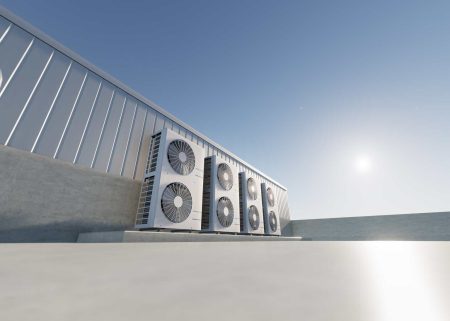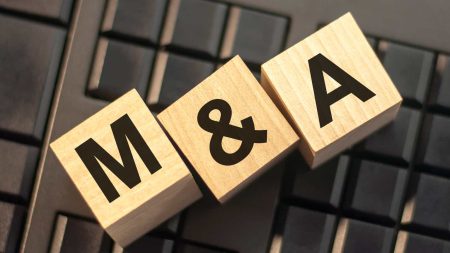By Yan Taw (YT) Boon
Computex 2024 and Apple’s Worldwide Developers Conference heralded the potential ubiquity of AI-driven handheld devices.
Advancements in artificial intelligence (AI) are poised to make current smart devices look downright dull.
This past June, humanity’s AI-driven future was on full display – from the grand stage of Apple’s Worldwide Developers Conference (WWDC) in Cupertino, Calif., to the vibrant floors of Computex in Taiwan.
In our view, the next generation of AI-packed smart devices has the potential to anticipate our needs and simplify our lives in ways we never thought possible – potentially spurring a new cycle of device upgrades and making seamless connectivity more relevant than ever.
At WWDC, Apple (AAPL, AAPL:CA) unveiled Apple Intelligence, a system that combines the power of generative models with personal context. By integrating ChatGPT access into Siri and its systemwide writing and imaging tools, users can expect a significantly enhanced experience.1
Meanwhile, at Computex, Microsoft (MSFT, [MSFT:CA]]) showcased its new AI-powered laptops featuring Copilot+ Windows, supported by Qualcomm’s (QCOM) Arm-based Snapdragon X Elite processing platform. Two innovative features include Recall (which allows users to review periodic snapshots of their computer screen in a way that feels like having photographic memory) and Live Captions (which can translate more than 40 spoken languages into English).2
We believe the proliferation of AI smart devices is set to spark a new era of device upgrades. Some estimates predict that the installed base of AI smartphones will expand 65% a year between 2024 and 2027, at which point it could exceed 1 billion units.3 Demand for AI PCs is also expected to ramp to nearly two out of every three units shipped by 2028, up from just one in five in 2024.4 As internet and software companies continue to train new AI agents, we believe broader AI use cases will emerge, making AI virtually ubiquitous across smartphones, PCs and other novel devices.
But this transformation will also require processors capable of running on-device generative AI models more quickly and efficiently. In hardware terms, that means a shift away from traditional System on Chip (SOC) architectures to more sophisticated chiplet designs, where APUs/NPU processors are manufactured as separate, smaller chips and then assembled. We believe chipmakers capable of navigating this transition and delivering greater flexibility and performance should stand to benefit.
Sources
1) Apple Newsroom, June 10, 2024;
2) Official Microsoft Blog, May 20, 2024;
3) Counterpoint Research, April 15, 2024; 4) IDC, June 3, 2024.
This material is provided for informational purposes only and nothing herein constitutes investment, legal, accounting or tax advice. This material is general in nature and is not directed to any category of investors and should not be regarded as individualized, a recommendation, investment advice or a suggestion to engage in or refrain from any investment-related course of action. Investment decisions and the appropriateness of this material should be made based on an investor’s individual objectives and circumstances and in consultation with his or her advisors. Information is obtained from sources deemed reliable, but there is no representation or warranty as to its accuracy, completeness or reliability. All information is current as of the date of this material and is subject to change without notice. The firm, its employees and advisory accounts may hold positions of any companies discussed. Any views or opinions expressed may not reflect those of the firm as a whole. Neuberger Berman products and services may not be available in all jurisdictions or to all client types. This material may include estimates, outlooks, projections and other “forward-looking statements.” Due to a variety of factors, actual events or market behavior may differ significantly from any views expressed.
This material is not intended as a formal research report and should not be relied upon as a basis for making an investment decision. The firm, its employees and advisory accounts may hold positions of any companies discussed. Specific securities identified and described do not represent all of the securities purchased, sold or recommended for advisory clients. It should not be assumed that any investments in securities, companies, sectors or markets identified and described were or will be profitable.
Investing entails risks, including possible loss of principal. Investments in hedge funds and private equity are speculative and involve a higher degree of risk than more traditional investments. Investments in hedge funds and private equity are intended for sophisticated investors only. Indexes are unmanaged and are not available for direct investment. Past performance is no guarantee of future results.
This material is being issued on a limited basis through various global subsidiaries and affiliates of Neuberger Berman Group LLC. Please visit www.nb.com/disclosure-global-communications for the specific entities and jurisdictional limitations and restrictions.
The “Neuberger Berman” name and logo are registered service marks of Neuberger Berman Group LLC.
© 2009-2024 Neuberger Berman Group LLC. All rights reserved.
Original Post
Editor’s Note: The summary bullets for this article were chosen by Seeking Alpha editors.
Read the full article here













